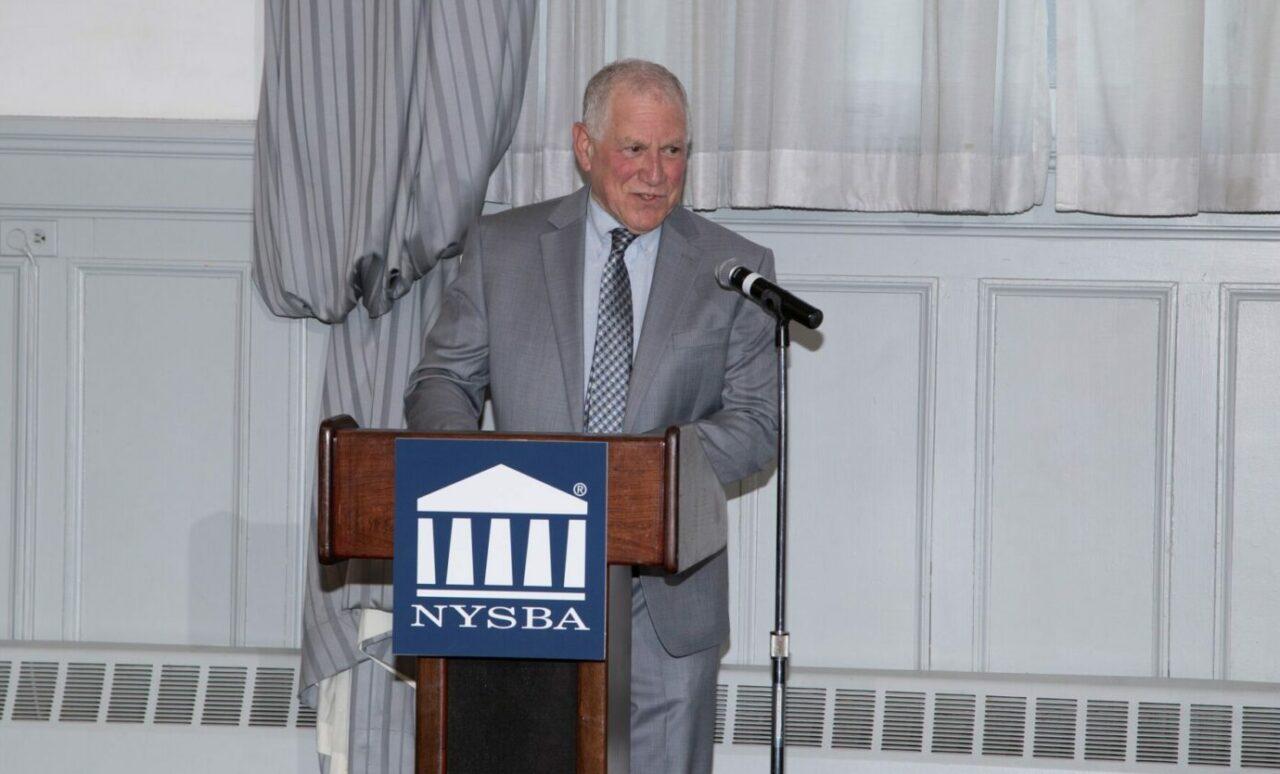Ethics Opinion 1259: Collaboration between lawyer and paralegal
6.8.2023

Topic: Collaboration between lawyer and paralegal
Digest: Subject to various Rules regarding fee sharing, referral fees, solicitation, aiding the unauthorized practice of law, and supervision of nonlawyers, a lawyer may enter into a non-exclusive agreement with a paralegal who refers clients to the lawyer and completes forms for submission to judicial and non-judicial bodies.
Rules: 5.3, 5.4(a), 5.5(b), 5.8, 7.2(a)
FACTS:
- The inquirer is an attorney who primarily practices immigration law. The inquirer has been approached by an individual who operates a document-preparation business and who is characterized by the inquirer as a “paralegal.” . The paralegal proposes to enter into a “collaboration agreement” that “implies both referring clients to my firm and completing forms that would later on be submitted to the immigration authorities (court and non-court cases).”
QUESTIONS:
- What ethical rules govern an agreement between a lawyer and an independently employed paralegal who wishes to refer clients to the lawyer and prepare documents for the lawyer’s use in his legal practice?
- On what basis, if any, could the lawyer ethically compensate the paralegal?
OPINION:
- This Committee does not give general advice on structuring business arrangements, nor does it critique proposed business plans. Rather, our jurisdiction is limited to addressing attorney inquiries regarding specific acts of proposed future conduct. Accordingly, our response to the current inquiry is to call attention to some of the important ethical principles which, under the New York Rules of Professional Conduct (“Rules”), would pertain to any relationship or business plan that the inquirer may pursue with the independently employed paralegal.
- In accepting the inquirer’s characterization of the nonlawyer with whom she is contemplating a business relationship as a “paralegal,” the Committee does not opine on whether that characterization is appropriate when such person is, as here, independently employed. Although more than 50 years ago this Committee described a “paralegal” in N.Y. State 255 (1972) as a “lay person employed by a lawyer to perform certain law office functions for which legal training and bar admission are not necessary” we note that the generally accepted meaning of the term has likely evolved. See also N.Y. State 1079 (2015) (“it is not deceptive for a lawyer to use the title ‘paralegal’ to describe a layperson who . . . who is not a graduate of a paralegal program or certified by any certifying body.”)
- Turning to the principles that shape the answer to this inquiry, the Committee begins with the rule, firstly, that a lawyer must not share legal fees with the paralegal. Rule 5.4 (a). See also N.Y. State 1068 (2015) (no fee-splitting with a nonlawyer). The paralegal may, of course, be appropriately compensated for the value of the paralegal services on an hourly or per document basis.
- Second, the inquirer may accept referrals from the paralegal but must not pay the paralegal a fee for referrals. Rule 7.2(a). See also N.Y. State 942 (2012) (it would violate Rule 7.2(a) to give something of value to a non-lawyer firm in exchange for referrals); N.Y. State 1132 (2017) (although lawyers may ethically pay nonlawyers for advertising and marketing services, they must not pay for a “recommendation”).
- Third, the inquirer should be mindful not to aid the paralegal in the unauthorized practice of law, a violation of Rule 5.5(b), although the question of whether certain collaborative actions taken by the inquirer might constitute the unauthorized practice of law presents issues of law on which this committee does not opine.
- Fourth, the inquirer must appropriately supervise the work of the paralegal with respect to the inquirer’s clients. Rule 5.3. The duty to provide appropriate supervision of “nonlawyers” extends to all nonlawyers “employed by or retained or associated with the law firm, including nonlawyers outside the firm working on firm matters.” Rule 5.3, Cmt [2] (emphasis supplied). The lawyer must ensure that the paralegal is “given appropriate instruction and supervision concerning the ethical aspects of their employment, particularly regarding the obligation not to disclose confidential information.” Id. When a lawyer uses a nonlawyer outside the firm to assist the lawyer in rendering legal services to the client, the lawyer “must make reasonable efforts to ensure that the services are provided in a manner that is compatible with the professional obligation of the lawyer and law firm.” Rule 5.3, Cmt [3]. As such, the inquirer “should communicate directions appropriate under the circumstances to give reasonable assurance that the nonlawyer’s conduct is compatible with the professional obligations of the lawyer.” Id.
- Fifth, the inquirer must not “allow, assist, or induce” the paralegal “to engage in conduct that the lawyer could not engage in directly,” in particular, the in-person solicitation of business for the inquirer. See N.Y. State 1068 ¶ 11 (2015); see also N.Y. State 705 (1997).
- Finally, Rule 5.8 is also relevant to this inquiry. Paragraphs (a) and (b) of that Rule permit lawyers to contract with nonlegal professionals included in a list of professions jointly established and maintained by the Appellate Divisions to provide, on a systematic and continuing basis, both legal and nonlegal services. Although paralegals are not included in that list, and although it is not even certain that paralegals would be considered professionals within the meaning of Rule 5.8 (see N.Y. State 255 (1972) (“paralegal” is a “lay person employed by a lawyer to perform certain law office functions for which legal training and bar admission are not necessary”), paragraph (c) of Rule 5.8 expressly allows “relationships consisting solely of non-exclusive reciprocal referral agreements or understandings between a lawyer or law firm and a nonlegal professional or nonlegal professional service firm.” As we said in N.Y. State 765, “It is important to emphasize that . . . any [such] reciprocal referral understanding, agreement or contract . . . must be nonexclusive. That is, a lawyer can never agree to refer all clients, or a specified quota . . . because the lawyer must continue to exercise professional judgment on behalf of the client.” And as stated in Comment [4] to Rule 7.2, “R]eciprocal referral arrangements must not interfere with the lawyer’s professional judgment as to making referrals or as to providing substantive legal services.”
CONCLUSION
- Subject to various Rules regarding fee sharing, referral fees, solicitation, aiding the unauthorized practice of law, and supervision of nonlawyers, a lawyer may enter into a non-exclusive agreement with a paralegal who refers clients to the lawyer and completes forms for submission to judicial and non-judicial bodies.
(03-23)






